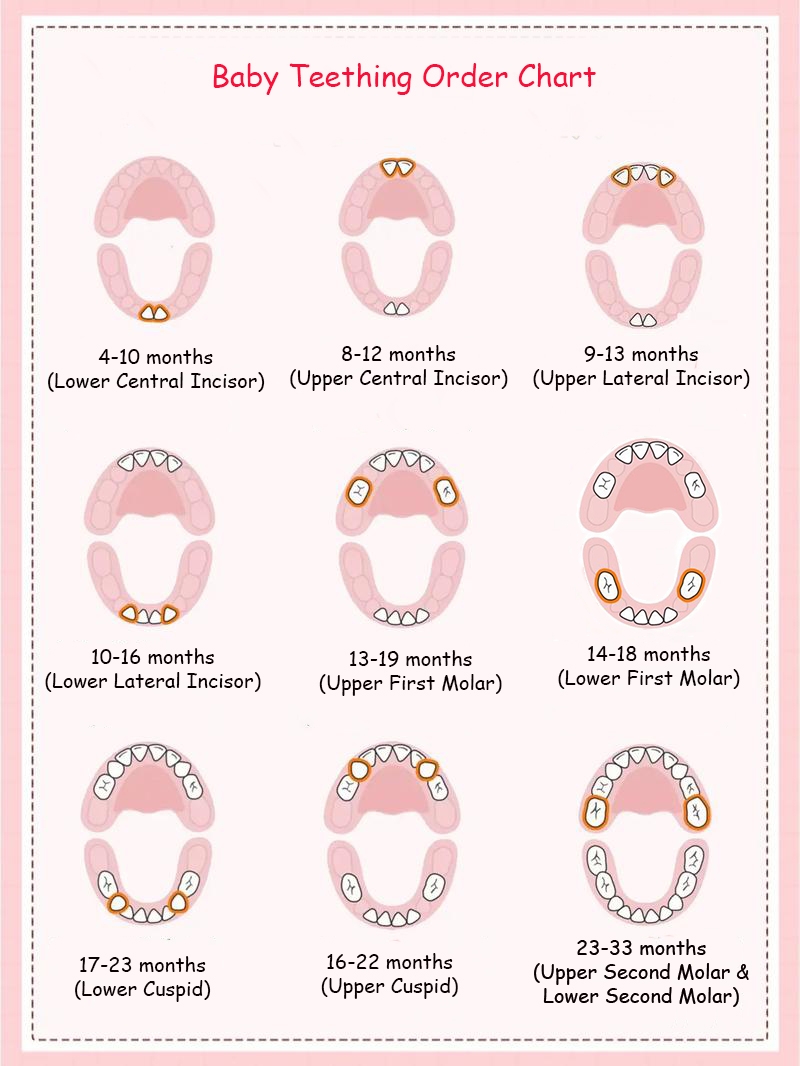Language
- English
- 日本語
- Deutsch
- Français
- Español
- Русский
- Português
- 简体中文
- Italiano
- 한국어
- Polskie
Currency
- USD (US Dollar)
- EUR (Euro)
- GBP (Pound Sterling)
- CNY (Yuan)
| Teeth | Erupt | Shed |
|---|---|---|
| Upper Teeth | ||
| Central Incisor | 8-12 months | 6-7 years |
| Lateral Incisor | 9-13 months | 7-8 years |
| Canine (Cuspid) | 16-22 months | 10-12 years |
| First Molar | 13-19 months | 9-11 years |
| Second Molar | 25-33 months | 10-12 years |
| Lower Teeth | ||
| Central Incisor | 6-10 months | 6-7 years |
| Lateral Incisor | 10-16 months | 7-8 years |
| Canine (Cuspid) | 17-23 months | 9-12 years |
| First Molar | 14-18 months | 9-11 years |
| Second Molar | 23-31 months | 10-12 years |

Common Teething Symptoms
- Drooling: Hyper saliva production is observed in most patients.
- Irritability: Some babies may be cranky or maybe uncomfortable in one way or the other.
- Chewing: Gasy awaits or baby gloomy uses her or his toys or fingers to produce pressure on the gums as a consequence of a toothache soreness.
- Swollen gums: There may be inflammation, enlargement or reddening of gums where teeth are developing.
- Sleep disturbances: Babies during these stages cannot sleep well because teething can affect their sleeping pattern.
Soothing Tips
- Teething Toys: Offer comfortable teething soothers made from fabrics that will not harm the baby’s gums such as silicone.
- Cold Compress: A clean, cold washcloth can help gums that are sore.
- Gentle Massage: This condition may be eased by gently rubbing the area around the affected gum with a clean finger.
- Distraction: If your baby is uncomfortable, distract him or her with play or read a book to divert his or her attention.
- Pain Relief: If your child is in pain, seek advice from your pediatrician on what should be done such as using gels or even taking a teething medication.
When to consult your pediatrician
Sometimes, a baby may experience severe signs like high fever, diarrhea, or continually crying, you should seek advice from a pediatrician to disapprove other illnesses.